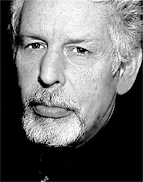 Richard Lourie
Richard LourieShortly before his death in December at 94, Mikhail Kalashnikov, inventor of the AK-47, began to be wracked by spiritual doubts.
"My spiritual pain is unbearable," he wrote in a letter to Kirill, patriarch of the Russian Orthodox Church. "It is always the same insoluble question: If my assault rifle took people's lives, then am I … guilty of their deaths, even if they were enemies?"
The Church's response was both patriotic and pragmatic: "When weapons serve to protect the fatherland, the Church supports both its creators and the soldiers who use it." Kalashnikov did not design his weapon "so terrorists could use it in Saudi Arabia."
"I sleep well," had been Kalashnikov's response to the inevitable questions about the millions who had been killed by his invention. But things could never be that straightforward, psychologically or politically. The AK-47's own baptism by fire came in 1956 during the Hungarian uprising in which about 50,000 Hungarians died. This was hardly an invading enemy, but every good Soviet knew that only 11 years before the Hungarians were allies of Nazi Germany, and it was those same elements behind the uprising.
And Kalashnikov was a good Soviet citizen. He suffered Soviet injustice — his own family was exiled to Siberia for being kulaks, or rich peasants. But Kalashnikov, a great admirer of Josef Stalin, gave even that injustice a very Soviet twist, saying, as paraphrased by C.J. Chivers in "The Gun," his history of the AK-47: "Stalin knew which families were hardy and resourceful enough to tame Siberia. He chose the Kalashnikovs to help build a greater Soviet Union." It was one of Kalashnikov's lasting regrets that he had never met Stalin in person.
Kalashnikov also embodied the Soviet myth that people — the workers and peasants — were the greatest source of creativity and invention. That Soviet sentiment was echoed by President Vladimir Putin, another good Soviet citizen, who in 2007 called the AK-47 a "symbol of the creative genius of our people."
It would take a Soviet, Fyodor Dostoevsky, to write the libretto for an opera about Kalashnikov's triumphs, doubts and repentance. The chances of that are slim at best, and so Kalashnikov's name will be forever associated with the millions who died from his simple, dependable weapon rather than the repentance he sought at the end of his life.
But there is another possibility. Kalashnikov could become a symbol of the one thing politicians, states and nations find it hardest to do: apologize, ask forgiveness or repent.
All countries are quick to recall their victories and the harm done them by others. But Russia could change that and institute a Kalashnikov Day when Russia's crimes against its own people and other nations are commemorated. The emphasis could vary from year to year — the pogroms against the Jews, the Katyn massacre, the exile of the entire Chechen and Ingush nations. The list is long. Such a holiday could be important for the still identity-devoid post-Soviet Russia that has still not come to terms with its own past.
Who knows, maybe the institution of a Day of National Repentance would spread to other countries with, say, the U.S. reflecting on its crimes against Indians and blacks. And for his contribution to the spiritual welfare of Russia and other nations, Kalashnikov might even be "glorified," as canonization is called in the Russian Orthodox Church.
All of this is of course utterly improbable — but not all that much more improbable than Kalashnikov's amazing success as a weapons designer and his repentance at death's door.
Richard Lourie is the author of "The Autobiography of Joseph Stalin" and "Sakharov: A Biography."
A Message from The Moscow Times:
Dear readers,
We are facing unprecedented challenges. Russia's Prosecutor General's Office has designated The Moscow Times as an "undesirable" organization, criminalizing our work and putting our staff at risk of prosecution. This follows our earlier unjust labeling as a "foreign agent."
These actions are direct attempts to silence independent journalism in Russia. The authorities claim our work "discredits the decisions of the Russian leadership." We see things differently: we strive to provide accurate, unbiased reporting on Russia.
We, the journalists of The Moscow Times, refuse to be silenced. But to continue our work, we need your help.
Your support, no matter how small, makes a world of difference. If you can, please support us monthly starting from just $2. It's quick to set up, and every contribution makes a significant impact.
By supporting The Moscow Times, you're defending open, independent journalism in the face of repression. Thank you for standing with us.
Remind me later.





